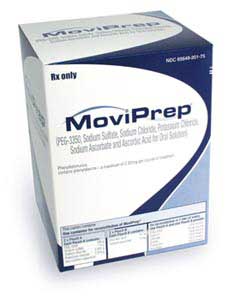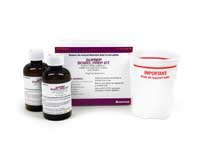What is the colon?
The colon, or large bowel, is the last portion of your digestive tract, or gastrointestinal tract. The colon is a hollow tube that starts at the end of the small intestine and ends at the rectum and anus. The colon is about 5 feet long, and its main function is to store unabsorbed food waste and absorb water and other body fluids before the waste is eliminated as stool.
Procedure
For the colonoscopy, you will lie on your left side on the examining table. You will be given pain medication and a moderate sedative to keep you comfortable and help you relax during the exam. The doctor and a nurse will monitor your vital signs, look for any signs of discomfort, and make adjustments as needed.
The doctor will then insert a long, flexible, lighted tube into your rectum and slowly guide it into your colon. The tube is called a colonoscope(koh-LONoh-skope). The scope transmits an image of the inside of the colon onto a video screen so the doctor can carefully examine the lining of the colon. The scope bends so the doctor can move it around the curves of your colon.
You may be asked to change positions at times so the doctor can more easily move the scope to better see the different parts of your colon. The scope blows air into your colon and inflates it, which helps give the doctor a better view. Most patients do not remember the procedure afterward.
The doctor can remove most abnormal growths in your colon, like a polyp, which is a growth in the lining of the bowel. Polyps are removed using tiny gio. care copy content Page 2 tools passed through the scope. Most polyps are not cancerous, but they could turn into cancer. Just looking at a polyp is not enough to tell if it is cancerous. The polyps are sent to a lab for testing. By identifying and removing polyps, a colonoscopy likely prevents most cancers from forming.
The doctor can also remove tissue samples to test in the lab for diseases of the colon (biopsy). Also, if any bleeding occurs in the colon, the doctor can pass a laser, heater probe, electrical probe, or special medicines through the scope to stop the bleeding. The tissue removal and treatments to stop bleeding usually do not cause pain. In many cases, a colonoscopy allows for accurate diagnosis and treatment of colon abnormalities without the need for a major operation.
During the procedure, you may feel mild cramping. You can reduce the cramping by taking several slow, deep breaths. When the doctor has finished, the colonoscope is slowly withdrawn while the lining of your bowel is carefully examined. Bleeding and puncture of the colon are possible but uncommon complications of a colonoscopy.
A colonoscopy usually takes 30 to 60 minutes. The sedative and pain medicine should keep you from feeling much discomfort during the exam. You may feel some cramping or the sensation of having gas after the procedure is completed, but it usually stops within an hour. You will need to remain at the colonoscopy facility for 1 to 2 hours so the sedative can wear off.
Rarely, some people experience severe abdominal pain, fever, bloody bowel movements, dizziness, or weakness afterward. If you have any of these side effects, contact your physician immediately. Read your discharge instructions carefully. Medications such as blood thinners may need to be stopped for a short time after having your colonoscopy, especially if a biopsy was performed or polyps were removed. Full recovery by the next day is normal and expected and you may return to your regular activities.
Colonoscopy Preparation
You will be given instructions in advance that will explain what you need to do to prepare for your colonoscopy. Your colon must be empty for the colonoscopy to be thorough and safe. To prepare for the procedure you will have to follow a liquid diet for 1 to 3 days beforehand. The liquid diet should be clear and not contain food colorings and may include
- fat-free bouillon or broth
- strained fruit juice
- water
- plain coffee
- plain tea
- diet soda
- gelatin
Thorough cleansing of the bowel is necessary before a colonoscopy. You will likely be asked to take a laxative the night before the procedure. In some cases, you may be asked to give yourself an enema. An enema is performed by inserting a bottle with water and sometimes a mild soap in your anus to clean out the bowels. Be sure to inform your doctor of any medical conditions you have or medications you take regularly such as
- aspirin
- arthritis medications
- blood thinners – like Warfarin, Eliquis, or Lovenox
- diabetes medication
- vitamins that contain iron
The medical staff will also want to know if you have heart disease, lung disease, or any medical condition that may need special attention. You must also arrange for someone to take you home afterward because you will not be allowed to drive after being sedated.
Colonoscopy, an examination of the colon (large intestine) with a lighted flexible scope. During the colonoscopy, if an abnormality is seen, it is usually biopsied at that time. This involves removing a portion or all of the abnormal area for processing and subsequent examination under a microscope.
The key to accurate diagnosis of your problem is proper preparation. The bowel needs to be flushed completely free of waste material that might hide an abnormality. The thoroughness of this cleaning DEPENDS ON YOU. Without your cooperation, the examination cannot accomplish its purpose and may have to be repeated.
Other Medications: Take your usual prescription medications (except iron or blood thinners as noted below). If you have a history of heart valve or valve surgery or need antibiotics before surgery, please notify us.
Blood Thinners: If you are taking blood thinners,(Warfarin, Coumadin, Plavix) please contact our office and your primary physician for specific instructions at least one week prior to the colonoscopy. ONLY STOP THESE MEDICATIONS IF YOU HAVE BEEN AUTHORIZED BY OUR DOCTOR OR YOUR CARDIOLOGIST. Aspirin is usually stopped one week before the colonoscopy.
– Nothing to eat or drink after midnight the night before your procedure
– NO Hard candy, breathe mint, lozenges, chewing gum

Moviprep

Suprep
Purchase these items ahead of time:
Golytely or Colytely or Nulytely Prep Kit (per your prescription from our office) Gatorade (no red flavors) Colonoscopy Preparation Timeline Five or more days prior to your colonoscopy:
- Arrange for a ride. If you do not have a ride, we will have to cancel the procedure. Purchase the laxative medications listed above.
- Check with your insurance carrier if you need pre-approval and that you understand your financial responsibility for the procedure. If you are having a colonoscopy for screening purposes (having no problems, but having the exam for preventative purposes), verify with your insurance company that “Screening Colonoscopy” is a covered benefit. There should be a number on the back of your insurance card to call.
- Stop taking iron and vitamins with iron five days before the colonoscopy.
- If you have sleep apnea please discuss this with your primary care physician and call to notify us at the phone number above, in advance of the procedure.
- Make any needed arrangements to be off work or school on the day of the colonoscopy. Please remember, by law, you cannot drive the rest of the day of the colonoscopy.
- Read and familiarize yourself with the preparation instructions at right.
Three days prior to your colonoscopy:
- Review and plan dietary needs for the next two days.
- Confirm your ride.
- Last chance to cancel or you will be charged a NO SHOW fee of $50
- If you have questions, please call us.
Two days prior to your colonoscopy:
- Eat well-balanced meals but avoid nuts, popcorn, raw fruit, raw vegetables, and salads.
- List any allergies and all prescription medications and non-prescription products (over-the-counter, anti-inflammatory, herbal, vitamins, etc.) you are taking. Bring these lists with you on the day of the colonoscopy.
One day prior to your colonoscopy:
- Start a Clear Liquid Diet when you get up and continue all day.
- Clear Liquid Diet
Soups: Clear bouillon, chicken broth, vegetable broth, beef broth, or consommé.
Beverages: Tea, coffee, Kool-Aid, carbonated beverages, Gatorade. You may add sugar to coffee and tea but not milk or creamer (non-dairy creamers are okay).
Juices: Cranberry, apple, grape, strained lemonade, limeade, and orange drink.
Any juice that you can see through and has no pulp is acceptable.
Dessert: Italian ices, popsicles, Jell-O and hard candy.
Do not drink RED colored beverages or eat RED Jell-O.
No solid food of any kind.
Throughout the day, make sure to drink at least eight glasses (two quarts) or more of fluids such as Gatorade, or a similar product, preferably not just plain water.
Diabetic Patients: You may have your usual breakfast today and should take your diabetic medications. The prep solution does not contain glucose sugar. Throughout the day, you should drink sugar-containing clear liquids, as needed to maintain your blood sugar level. Monitor your blood sugar at your usual times.
8 a.m. Place Golytely or Nulytely or Colytely in refrigerator
Between 7 p.m. and 8 p.m. Begin to drink the preparation.
Drink one, eight-ounce glass of Golytely or Colytely or Nulytely every ten minutes until the preparation is finished. Shake the container before pouring each glass.
You will consume several glassfuls before you have the first loose watery bowel movement, and this may make you feel slightly bloated. You will be come more comfortable as you start to have bowel movements. You may experience nausea, abdominal fullness, and bloating. If this occurs, stop drinking temporarily or drink each portion at longer intervals until these symptoms disappear. If you start to have severe abdominal pain and vomiting stop drinking and call our office.
Remember to remain close to toilet facilities!
You may continue to have clear liquids until midnight. After midnight, do not eat or drink anything except the colonoscopy prep and you should take your medications with sips of water.
The day of your colonoscopy:
Continue with all your usual prescription medications. Please be sure to take any blood pressure or heart medications the morning of the test with a sip of water.
Diabetic Patients: Do not take your diabetes pills today, but do bring a dose with you to take after your colonoscopy. If you are on Insulin, take ½ of usual NPH and no regular insulin. Bring the remaining doses with you to take after your colonoscopy.
When you are ready to leave, your designated driver will take you home where you can eat and relax the rest of the day. You will receive specific instructions about eating, activities, and medications before you leave.
TRANSPORTATION
Due to possible lingering effects from the sedation you cannot drive for the remainder of the day following your procedure, and therefore, you must have a ride home. For your own safety, you will not be discharged from the Endoscopy Center unless a responsible adult, over the age of 18, is present to either drive you home or accompany you in a taxi or public transportation.
Please call 407-201-3686 if you have any questions



